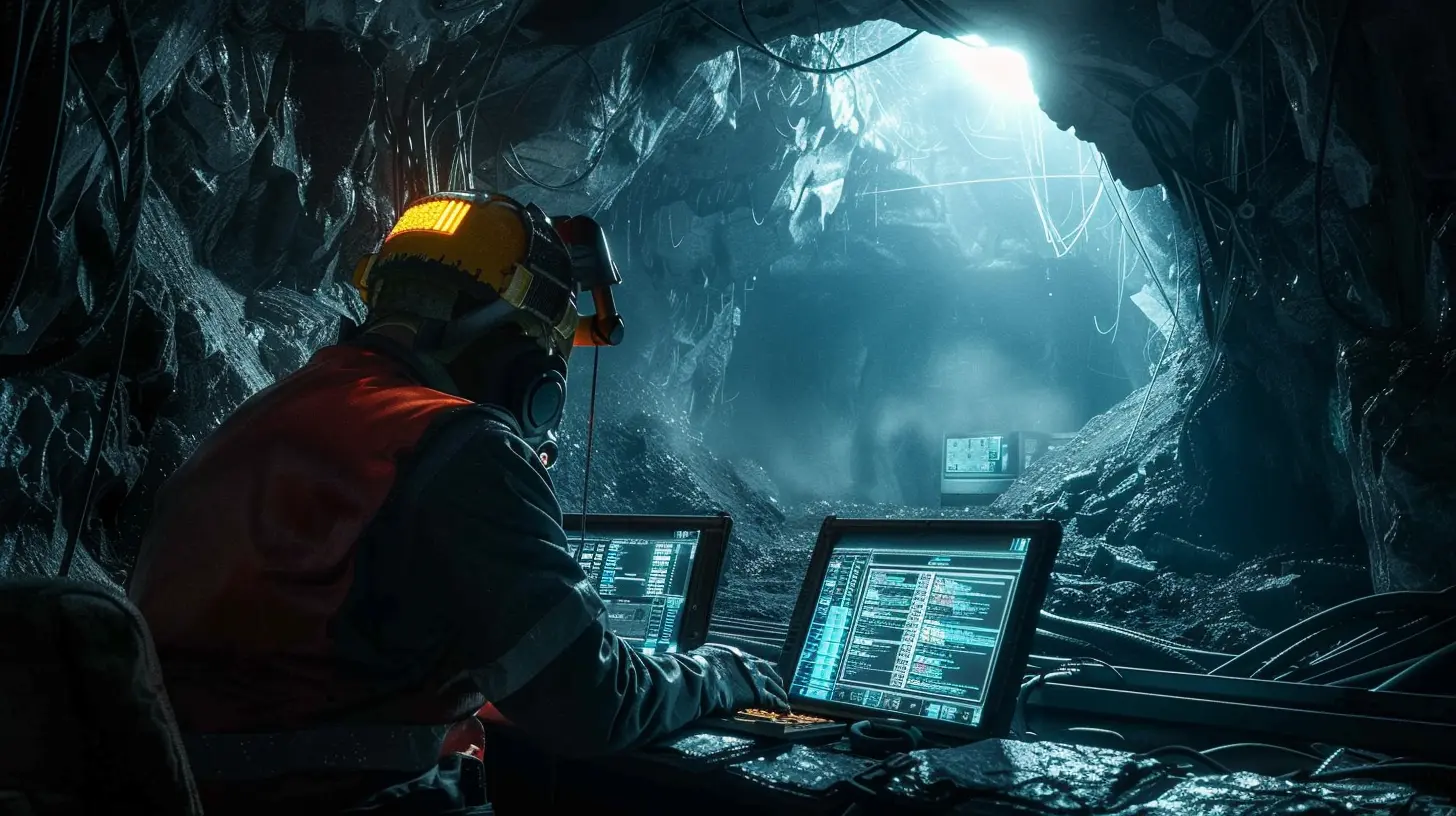The Rise of the Data Miner: How Games Get Leaked
25 October 2025
Ever wondered how some players know about upcoming game features before the developers even announce them? How do entire maps, character skins, and secret storylines end up all over Reddit and Twitter weeks before launch?
Welcome to the fascinating, slightly shady, and endlessly intriguing world of data mining.
This is the story of how video game secrets don’t stay secret for long — and why data miners have become the Sherlock Holmes of the gaming universe. Let’s dig in (pun absolutely intended).
🎮 What Is Data Mining in Gaming?
Okay, let's break it down.Data mining, in a nutshell, is the act of digging through a game's code — usually from betas, public test servers, or pre-released content — to find hidden or unreleased information. These hidden gems might be new weapons, upcoming characters, story spoilers, or even entire DLC packs.
Think of it like a digital treasure hunt. Except instead of gold coins, the prize is information — and loads of it.
For data miners, it's not illegal most of the time (depending on how they access the data), but it sure gets into murky waters real fast.
🧠 Why Game Files Hold So Many Secrets
You might be thinking, “Why don’t developers just hide that stuff better?”Great question.
Game development is messy, and time is money. Studios often include assets and code for unreleased content in current builds simply because it’s easier and more efficient than constantly stripping and re-adding it. Once something is in the game files — even if it’s locked away — it becomes fair game for data miners.
Imagine building a house. You don’t install plumbing only when someone wants to turn on the tap, right? It’s all there, just waiting. Same idea.
So when developers push out an update, that 200MB patch might include much more than it seems. And the moment it hits public servers, data miners get to work.
🛠️ The Tools of the Trade
So how do they do it?An average gamer might download an update and load up the game. A data miner? They dissect that update like a frog in biology class. Here's a quick peek at the digital toolbox they use:
- Data Extraction Tools – Programs like QuickBMS, Asset Studio, and UnrealPak let miners open compressed files and access raw game assets.
- Hex Editors – These help sift through spaghetti strings of code to find references to future content.
- File Compare Tools – By comparing before-and-after file versions, miners can spot new entries or updated parameters.
It’s not exactly plug-and-play. This stuff takes time, know-how, and a whole lot of patience. But once they crack it, the internet lights up with leaks.
🕵️♂️ Famous Leaks That Rocked the Gaming World
Let’s look at some legendary leaks that were born from the hands of data miners.1. Fortnite’s Endless Surprises
Fortnite might be the most data-mined game in history. New weapons, skins, emotes — they all get leaked days (sometimes weeks) in advance. Remember the Marvel-themed season? Data miners found assets tying into Iron Man and Thor long before Epic Games revealed it.It’s become so common, the Fortnite devs sometimes troll the miners by adding fake assets.
2. Overwatch 2’s Hero Leaks
Before Blizzard officially showcased Sojourn, data miners already uncovered scripts, ability names, and even voice lines. They pieced together a pretty solid picture of the character months before the reveal.3. Pokémon Leaks
From Pokémon Sword & Shield to Scarlet & Violet, datamining has spoiled major plot points, new Pokémon forms, and even DLC content. In some cases, the entire Pokédex was leaked ahead of release.That’s not just a spoiler — that’s a full-on content dump.
🎯 Why Players Love (and Hate) Leaks
Let’s be honest — leaks are addicting. They feed our curiosity, stoke hype, and give us something to talk about.But it’s not all sunshine and spoilers.
✅ The Pros:
- Builds excitement – Fans speculate, theory-craft, and plan their in-game future.- Transparency – Leaks sometimes reveal good things that devs aren’t ready to show.
- Informs purchases – Players may wait or rush to buy based on leaked content.
❌ The Cons:
- Ruins surprises – Devs plan reveals to wow us. Leaks can kill that magic.- Misinformation – Not all leaks are accurate. Rumors often get mixed in.
- Hurts developers – Months of hard work can be spoiled in a single forum post.
It’s kind of like peeking at your birthday presents early. Sure, it’s fun — but it kind of ruins the party, too.
🧑💻 Are Data Miners Hackers?
That depends on who you ask. But here's the lowdown.Most reputable data miners aren't hacking anything. They're not cracking servers or bypassing security. They’re combing through files that are already on your system — just buried beneath layers of code.
Is it legal? Murky.
Most developers include clauses in their Terms of Service that technically forbid data mining. But enforcement is tricky unless someone is monetizing the leaks or gaining unauthorized access. So it lives in this weird digital gray area — not quite criminal, definitely not encouraged.
🏃♂️ The Cat-and-Mouse Game With Developers
Over time, developers have fought back. Hard.Many studios now:
- Encrypt game files
- Delay adding assets for upcoming content
- Use codenames to confuse miners
- Insert false leads as decoys
It’s a constant arms race. Data miners get better tools. Devs improve their defenses. Rinse and repeat.
Interestingly, some devs have embraced data mining in a weird way. They leak fake assets on purpose or leave breadcrumbs as fun Easter eggs. They know the miners are coming — may as well have some fun with it.
📱 Social Media: The Fuel That Spreads Fire
Ten years ago, a data miner might post to a forum and a handful of hardcore fans would care. Today? A single tweet from a well-known leaker can get thousands of retweets in hours.YouTube channels, Discord servers, and subreddits now thrive off analyzing and reacting to leaks. Some leakers even build brands and followings bigger than indie game studios.
It’s not just about the leak anymore — it’s about the interpretation, the speculation, and the hype.
🤔 Should You Follow Gaming Leaks?
Great question.If you love surprises — maybe hold off. Leaks can taint your initial experience, especially with story-based games.
But if you’re the kind of person who reads movie spoilers before watching? You’ll love it. Just make sure to verify your sources — not every “leak” is legit.
There are plenty of reliable leakers (Nintendo content, for example, has a few household names in the scene), but you’ll also run into fakes fishing for clout.
🏆 The Most Infamous Data Miners
Let’s give a shoutout (or a side-eye, depending on your stance) to some of the biggest names in the space:@HYPEX (Fortnite)
Renowned for detailed Fortnite leaks, often days before updates drop.CentroLeaks (Pokémon)
Known for consistently accurate information on Nintendo games, especially Pokémon titles.OverwatchNaeri
Has been at the forefront of Overwatch data mining, revealing maps, skins, and ability details.These individuals have turned data mining into a craft — mixing detective work with technical skill and a big ol' scoop of curiosity.
🧠 The Ethical Debate: Harmless Fun or Harmful Practice?
Here’s the million-dollar question: Is data mining bad for gaming?There’s no simple answer.
On one hand, it fuels community engagement and sometimes forces transparency from studios. But on the other? It disrupts marketing strategies, ruins surprises, and can demoralize developers.
Many devs have expressed frustration. Imagine working late nights for months to craft a killer reveal — only to have some pseudonymous Reddit user drop your entire plan early.
That stings.
But ultimately, it’s a part of today’s gaming world. Just like speedrunners, modders, and glitch-hunters, data miners have carved out a niche. Some folks love them. Others wish they’d just stop digging.
🔮 What Does the Future Hold?
Games are only getting bigger, more complex, and more connected. That means more data, more leaks, and more digging.As long as developers leave digital breadcrumbs, someone will follow the trail. And with AI and automation improving, tomorrow’s data miners might uncover secrets faster than ever.
Whether you see them as digital archaeologists or party crashers, one thing’s for sure: data miners have changed the gaming landscape — and they’re not going anywhere.
Final Thoughts
Gaming used to be all about mystery, discovery, and surprise. But now? The internet has flipped that script. The rise of the data miner has challenged how games are marketed, played, and even developed.So if your favorite game just got a suspiciously large update, you might want to keep an eye on Twitter. Because somewhere out there, a data miner is already digging into it.
And they’re probably about to blow your mind.
all images in this post were generated using AI tools
Category:
Gaming LeaksAuthor:

Whitman Adams
Discussion
rate this article
1 comments
Kova Rivera
Great article! It's fascinating to see how data mining impacts the gaming community. Understanding these leaks helps us appreciate the hard work developers put into creating immersive experiences. Keep it up!
October 25, 2025 at 2:59 AM

Whitman Adams
Thank you for your kind words! I'm glad you found the article insightful. Data mining truly plays a significant role in shaping our understanding of game development.


